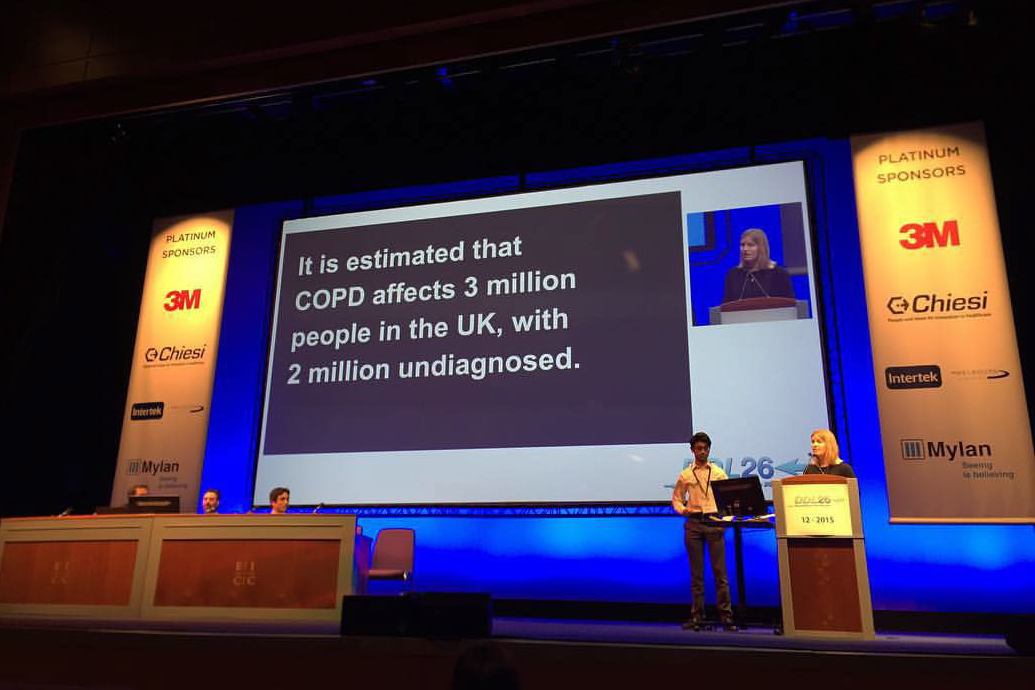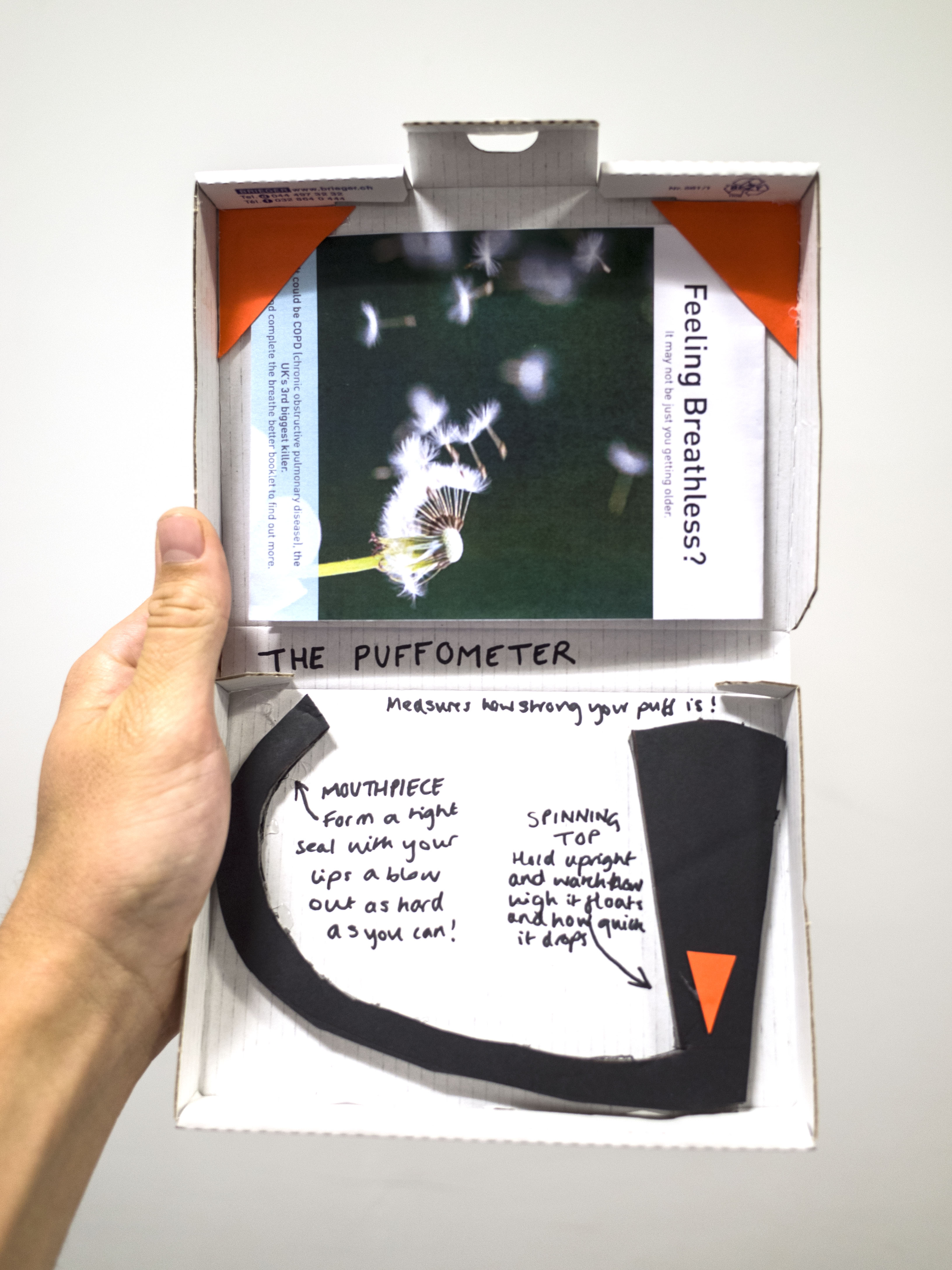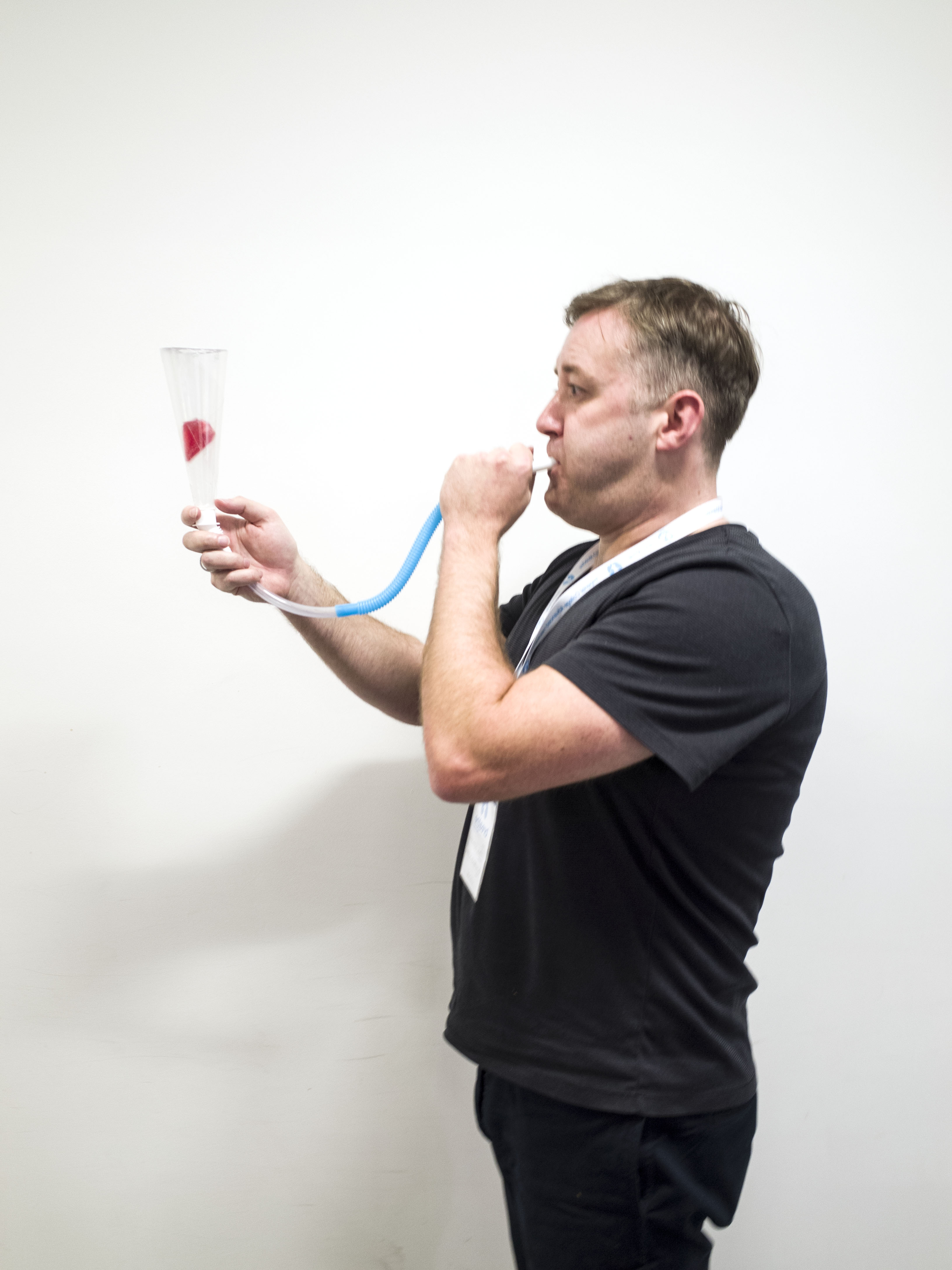breathe better

The team presenting at the Drugs Delivery to Lungs (DDL) Conference 2015
Breathe Better is a multi-channel primary care prevention campaign for chronic obstructive pulmonary disease (COPD). According to the NHS, 3 million people in the UK are living with COPD, with ⅔ being undiagnosed. While it costs the healthcare service £800 million annually, and is the UK’s 3rd biggest killer, COPD awareness is very low, resulting in very late diagnoses; this leads to significantly lower quality of life and significantly higher management costs. Breathe Better aims to raise COPD awareness, in both patients and GPs, through an advertising campaign in addition to send-home test kits targeted at at-risk demographics, inspired by the successful model put forward by the faecal occult blood tests.

Iterations of spinning top prototypes

Mock-up of home test kit

Final Puff-o-meter prototype for breathing exercises
The test kit includes the Puff-o-meter - an engaging breathing exercise in which a sustained exhalation causes the spinning top to float and spin inside. It also consists of an information booklet, a set of integrated exercises and a quick rip-out questionnaire to take to your GP. Whilst not being a medical diagnostic tool, the Puff-o-meter was designed to simply raise awareness of your lungs and your current breathing capacity, allowing for a low-tech and low-cost solution for the prevention of a common and expensive disease. The unit cost for the kit was estimated by Cambridge Consultants to be £0.50, which was seen as being very good value when compared to the average inpatient admission cost of £1960; NICE estimates that a 5% of hospital admissions would save the NHS £15.5 million each year, and more importantly significantly improve the quality of life of those diagnosed earlier than usual.
The Breathe Better campaign was developed during the Breathe Hackathon 2015, a global event held simultaneously across three institutions: Imperial College Advanced Hackspace (UK), MIT Media Lab (USA) and Technion (Israel). The hackathon, supported by IBM, Philips, Novartis, Cambridge Consultants and and the British Lung Foundation, aimed to bring together medical professionals, STEM students, and entrepreneurs to help create and develop solutions within the field of respiratory disease. The low-tech campaign won third place within a 'high-tech' hackathon, and was presented at the Imperial College Advanced Hackspace Demo Day as well as the annual DDL Conference.